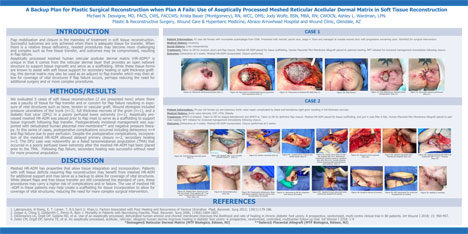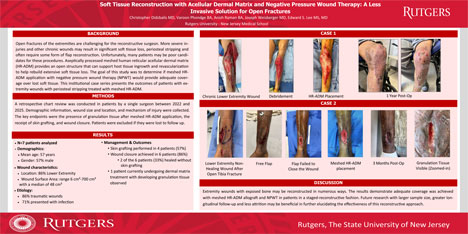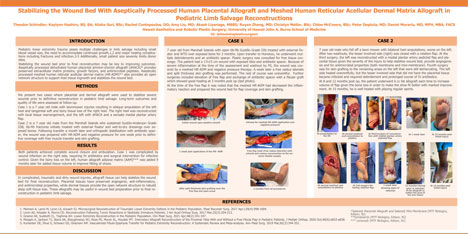Science Driven.
Patient Focused.
Patient Focused.
Explore the Clinical Posters from SAWC Fall 2025
At MTF Biologics, advancing science means sharing knowledge. We're proud to showcase our recently presented clinical posters from Fall SAWC 2025, highlighting the latest research, data, and real-world outcomes with our dermal and placental allografts.
These posters represent the collaborative work of leading clinicians and researchers dedicated to improving patient care.
Browse the collection below to explore the science behind our mission—and see how clinical progress is shaping the future of wound care.


